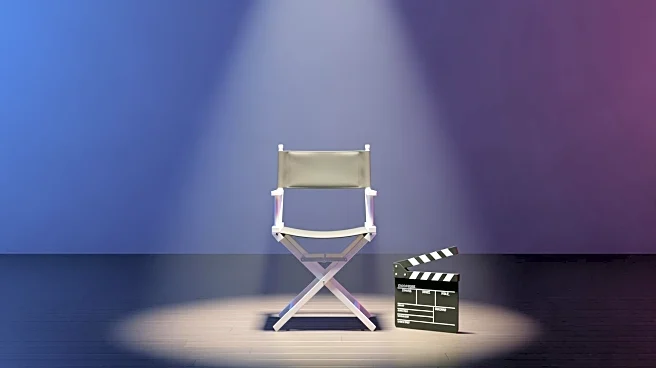What's Happening?
The BBC has upheld 20 complaints regarding presenter Martine Croxall's alteration of a script during a live broadcast on the BBC News Channel. Croxall changed the wording from 'pregnant people' to 'women' while introducing an interview about research
on groups most at risk during UK heatwaves. The BBC's Executive Complaints Unit (ECU) stated that Croxall's facial expression during the broadcast gave the impression of expressing a personal view on a controversial matter related to trans identity. The ECU noted that Croxall's facial expression was interpreted by complainants as showing various negative emotions, such as disgust or ridicule. The incident has sparked debate, with some praising Croxall, including author JK Rowling, while others criticized her actions. The ECU emphasized that the alteration and facial expression fell short of the BBC's expectations for impartiality.
Why It's Important?
The incident involving Martine Croxall highlights ongoing discussions about language and representation in media, particularly concerning gender identity. The BBC's decision to uphold complaints underscores the importance of impartiality and adherence to editorial standards in broadcasting. This case reflects broader societal debates about inclusivity and the use of language that acknowledges diverse identities. The controversy may influence how media organizations approach scripting and presentation, prompting them to consider the implications of language choices on public perception and audience engagement. The situation also illustrates the challenges media professionals face in navigating sensitive topics while maintaining neutrality, which is crucial for preserving trust and credibility with audiences.
What's Next?
The BBC may review its editorial guidelines and training for presenters to ensure clarity and consistency in language use, particularly regarding sensitive topics. This could involve discussions with editorial teams to address potential biases and improve impartiality in broadcasts. The incident may also lead to broader conversations within the media industry about the representation of diverse identities and the role of language in shaping public discourse. Stakeholders, including advocacy groups and media professionals, may engage in dialogue to promote understanding and inclusivity in media practices. The BBC's handling of the complaints may set a precedent for how similar issues are addressed in the future, influencing industry standards and practices.
Beyond the Headlines
The controversy surrounding Croxall's script alteration raises ethical considerations about the role of media in reflecting societal values and norms. It highlights the tension between maintaining impartiality and acknowledging diverse identities, which can impact public trust in media organizations. The incident also underscores the cultural dimensions of language use, as media professionals navigate evolving societal expectations and debates about representation. This case may contribute to ongoing discussions about the media's responsibility in fostering inclusivity and understanding, encouraging organizations to critically evaluate their practices and policies.















